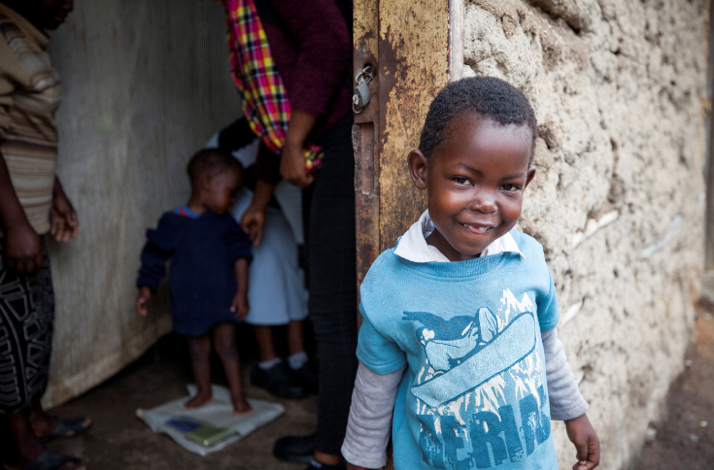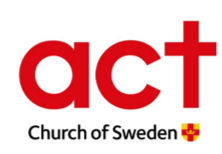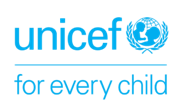

Today we have made a difference. It's not every day you get to feel that way, but today we can let that sink in for a moment. Phumzile called this morning and wanted me to follow her to a client. Her area is not so densely populated and the distances are longer than between the houses in central Matsapha . As I approach the dirt road, I see the big Siphilile umbrella that each Mentor Mother carries as protection against sun or rain . A sign which also makes them easy to find. Phumzile says she does not know what she will do for the mother who she met yesterday. The family lives a in the rural area and the availability of food is scant. The husband has an employment, but earns only 40 US dollars a month. They have four children, of whom the youngest is just over a month. But it is the big sister, two and a half years of age, that worries Phumzile . We sit in the car and look through the girl's journal and I'm trying to understand what actually is the problem. The girl is underweight and late in development. Phumzile says she can not walk and does not talk . She is also HIV positive. The situation is very stressful for the mother who has difficulty getting to the clinic to get her own and her daughter's ARVs (Anti-retroviral treatment). Phumzile says that the mother only cries when she's talking to her, and she seems to have given up.
So we leave the car and go to the familiy's "homestead " . The house is simple and built of mud and sticks. The mother receives us and Phumzile declares that we have come to examine her daughter. The girl has very little muscle strength and her eyes have trouble focusing. But she follows my movements and I even manage to get a little smile. I explain to the mother that the girl needs to see a neurologist, that she has a chronic condition and that she needs to get to physiotherapy. Phumzile translates and explains. The mother says she understands, but says that the worst is all the seizures. This was new information and after a while it becomes clear that the girl has epilepsy, that she has been to the hospital six months ago and received medication, but that she now has 2-4 seizures a day. The mother is heartbroken and does not know what she to do. She does not want to go to the doctor. Bus ticket to the hospital costs 2 US dollars back and forth, the patient fee another 2 US dollars , and then the cost of medicine. Money they can not spare . In addition, she has the litnewborn to take care of , and she can not carry them both. But now we have Siphilile's car and Phumzile persuades her to follow us and that we will pay the hospital costs. The ongoing seizures makes it important not to delay. We squeeze into the small car and go to the hospital. The girl gets to meet a doctor and she will be admitted to the pediatric ward for observation and medication adjustment. First the mother refuses, but Phumzile and the doctor convinces her that it is important for the girl's sake and that the cost of 1 US dollar a day will not be a problem. Once they are in the ward she thanks Phumzile, relieved that they are now in the hospital. She says she almost gave up, the obstacles seemed insurmountable. Now maybe her daughter can become free from seizures, and although the road is long ahead, a major step was taken today. When we go back in the car Phumzile is noticeably relieved. I commend her for making a big difference today. That her presence and commitment to her client has not only solved a medical problem but also given a bit of hope back.
Phumzile has worked as a Mentor Mother for four months , and she says that she initially she did not know what she could contribute. Her first day she was out in the field she was really scared. What did she have to offer? But then she told herself that she would only tell people about what she had learned in training. The first day came as a great surprise for her. She noticed right away that the women she met listened to her, that what she said was important and made a difference. Now she is proud to be a " Siphilile woman" , and after today's trip to the hospital , she has every reason to be so even more. For today we have made a difference in a rather obvious way. Maybe it does not feel that way every day, that what we do really changes. But Phumzile and the other Mentor Mothers will continue to meet women and children at risk, continue to be present, to listen and give advice. And many times that is what makes a vital difference!
So we leave the car and go to the familiy's "homestead " . The house is simple and built of mud and sticks. The mother receives us and Phumzile declares that we have come to examine her daughter. The girl has very little muscle strength and her eyes have trouble focusing. But she follows my movements and I even manage to get a little smile. I explain to the mother that the girl needs to see a neurologist, that she has a chronic condition and that she needs to get to physiotherapy. Phumzile translates and explains. The mother says she understands, but says that the worst is all the seizures. This was new information and after a while it becomes clear that the girl has epilepsy, that she has been to the hospital six months ago and received medication, but that she now has 2-4 seizures a day. The mother is heartbroken and does not know what she to do. She does not want to go to the doctor. Bus ticket to the hospital costs 2 US dollars back and forth, the patient fee another 2 US dollars , and then the cost of medicine. Money they can not spare . In addition, she has the litnewborn to take care of , and she can not carry them both. But now we have Siphilile's car and Phumzile persuades her to follow us and that we will pay the hospital costs. The ongoing seizures makes it important not to delay. We squeeze into the small car and go to the hospital. The girl gets to meet a doctor and she will be admitted to the pediatric ward for observation and medication adjustment. First the mother refuses, but Phumzile and the doctor convinces her that it is important for the girl's sake and that the cost of 1 US dollar a day will not be a problem. Once they are in the ward she thanks Phumzile, relieved that they are now in the hospital. She says she almost gave up, the obstacles seemed insurmountable. Now maybe her daughter can become free from seizures, and although the road is long ahead, a major step was taken today. When we go back in the car Phumzile is noticeably relieved. I commend her for making a big difference today. That her presence and commitment to her client has not only solved a medical problem but also given a bit of hope back.
Phumzile has worked as a Mentor Mother for four months , and she says that she initially she did not know what she could contribute. Her first day she was out in the field she was really scared. What did she have to offer? But then she told herself that she would only tell people about what she had learned in training. The first day came as a great surprise for her. She noticed right away that the women she met listened to her, that what she said was important and made a difference. Now she is proud to be a " Siphilile woman" , and after today's trip to the hospital , she has every reason to be so even more. For today we have made a difference in a rather obvious way. Maybe it does not feel that way every day, that what we do really changes. But Phumzile and the other Mentor Mothers will continue to meet women and children at risk, continue to be present, to listen and give advice. And many times that is what makes a vital difference!
Mats Målqvist, Project Manager.
Siphilile Maternal and Child Health
PO Box 326
Matsapha, Swaziland
Phone: +286 2518 8661
Facebook
Supported by:





